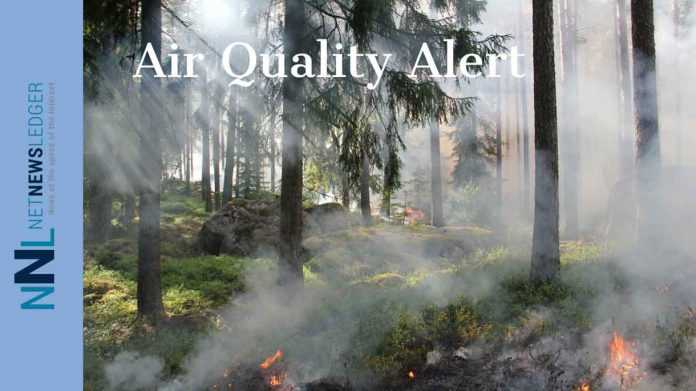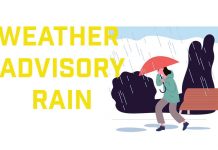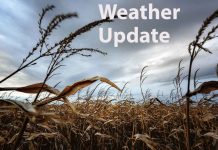Potential health risks due to high pollution levels and how to protect yourself
PICKLE LAKE – WEATHER – Residents of Pickle Lake and Wunnummin Lake are being advised of a significant weather-related health alert tonight. An influx of smoke from forest fires in the west is anticipated to affect air quality in the region, with a cold front potentially driving smoke to ground level.
Detailed information about these conditions is available at Environment Canada’s wildfire smoke page.
Exposure to wildfire smoke can have adverse health impacts for everyone, even at low concentrations. To minimize exposure and potential harm, specific measures can be taken.
Individuals with pre-existing lung conditions such as asthma, heart diseases, pregnant people, the elderly, children, and those whose work demands outdoor exposure are particularly at risk. It is recommended to speak with health care providers about a wildfire smoke management plan and always keep necessary medications within reach during the wildfire season.
If breathing becomes difficult or any symptoms of ill health appear, it is advised to lower physical activity levels or stop altogether. Contact a health professional or local health authority for severe symptoms or advice.
Keep an eye on the Air Quality Health Index (AQHI) and stay aware of personal health symptoms. Drinking plenty of water can assist your body in coping with smoke exposure.
For those with HVAC systems at home, use the highest rated MERV filter compatible with your system (preferably 13 or higher), and set the fan to recirculate air constantly. You can also consider using a portable High Efficiency Particulate Air (HEPA) air cleaner. Ensure doors and windows are kept closed if the indoor temperature remains comfortable.
If you must be outdoors, use a well-fitted respirator type mask, such as a NIOSH certified N95 or equivalent respirator, which can reduce exposure to fine particles in smoke. It’s crucial to remember that respirators do not reduce exposure to gases present in wildfire smoke. Listen to your body and reduce or stop activities if symptoms arise.
Finally, check on individuals under your care and those who may be more vulnerable to smoke. Minimize sources of indoor air pollution, including smoking or vaping indoors, burning incense and candles, frying foods, using wood stoves, and vacuuming. During high pollution periods, dust can be removed by wiping and wet mopping.








